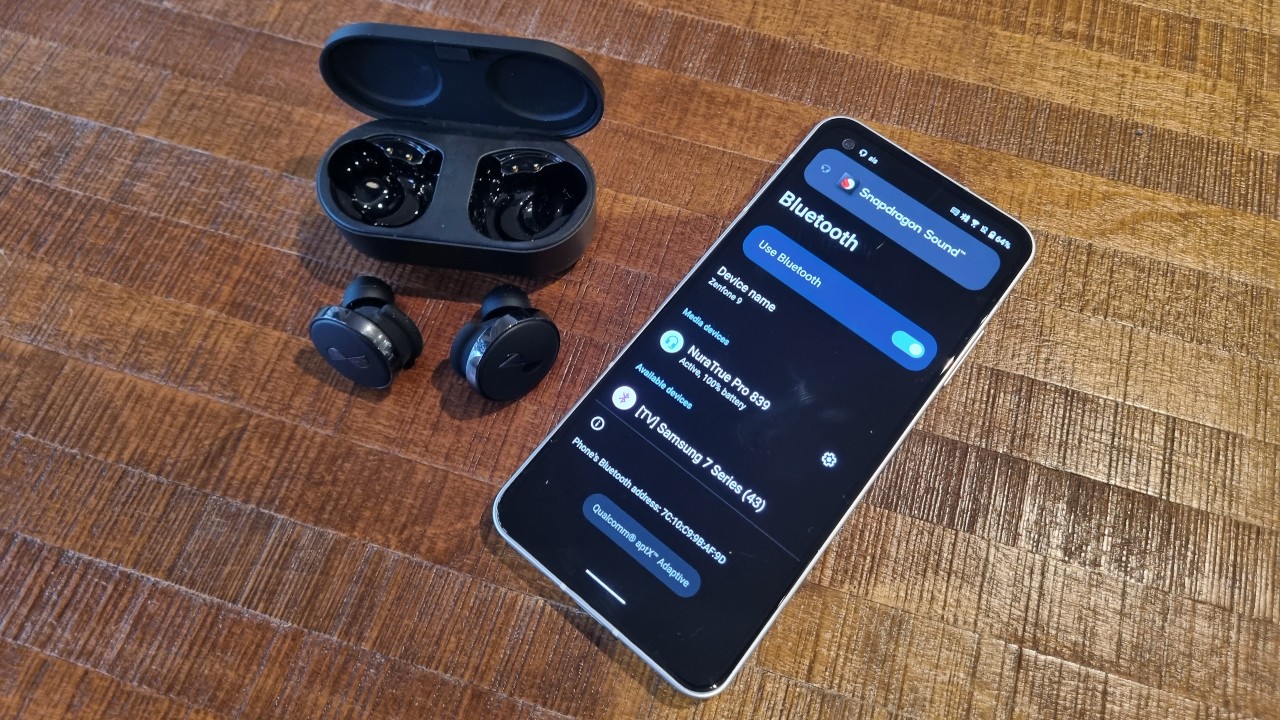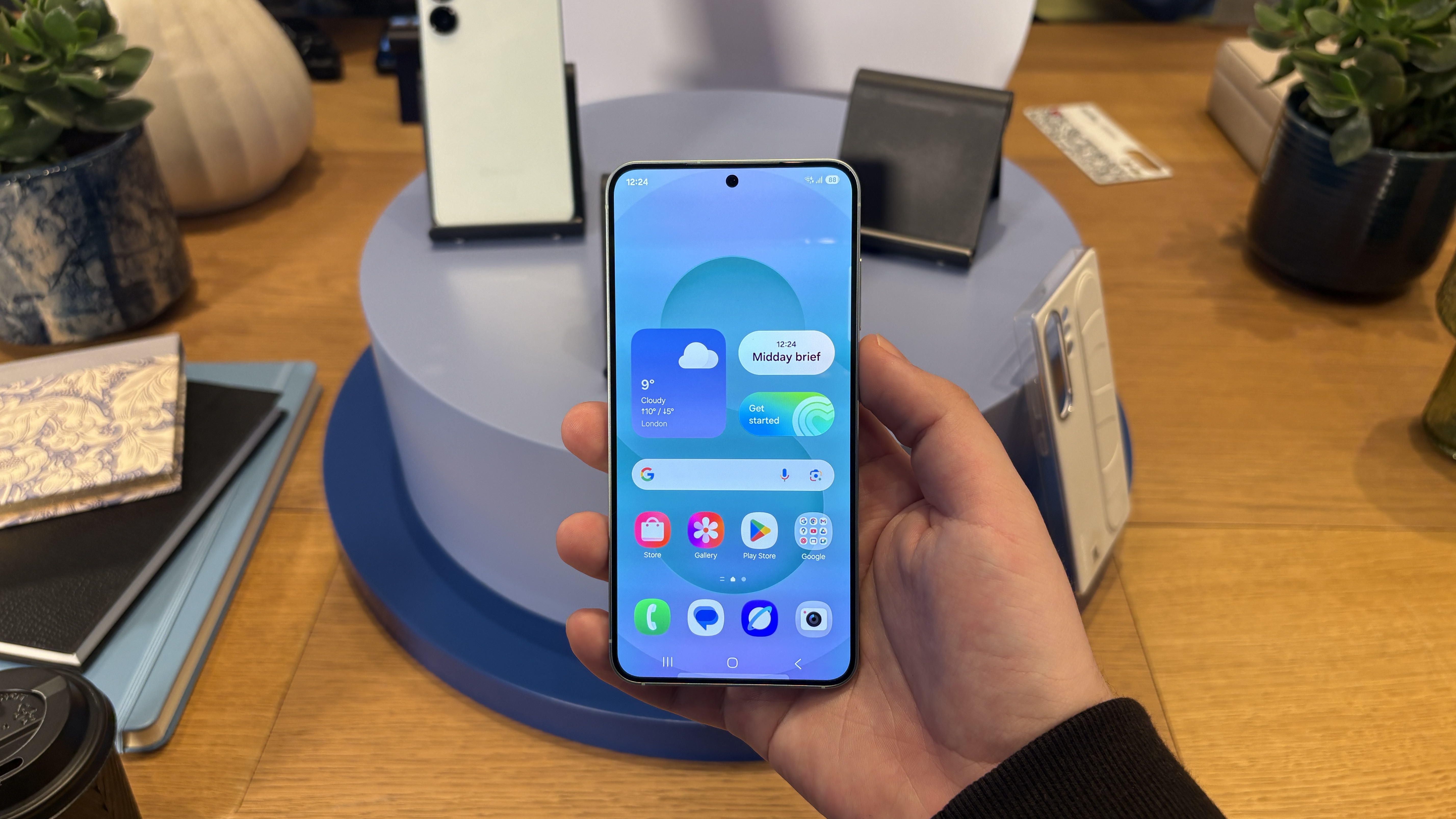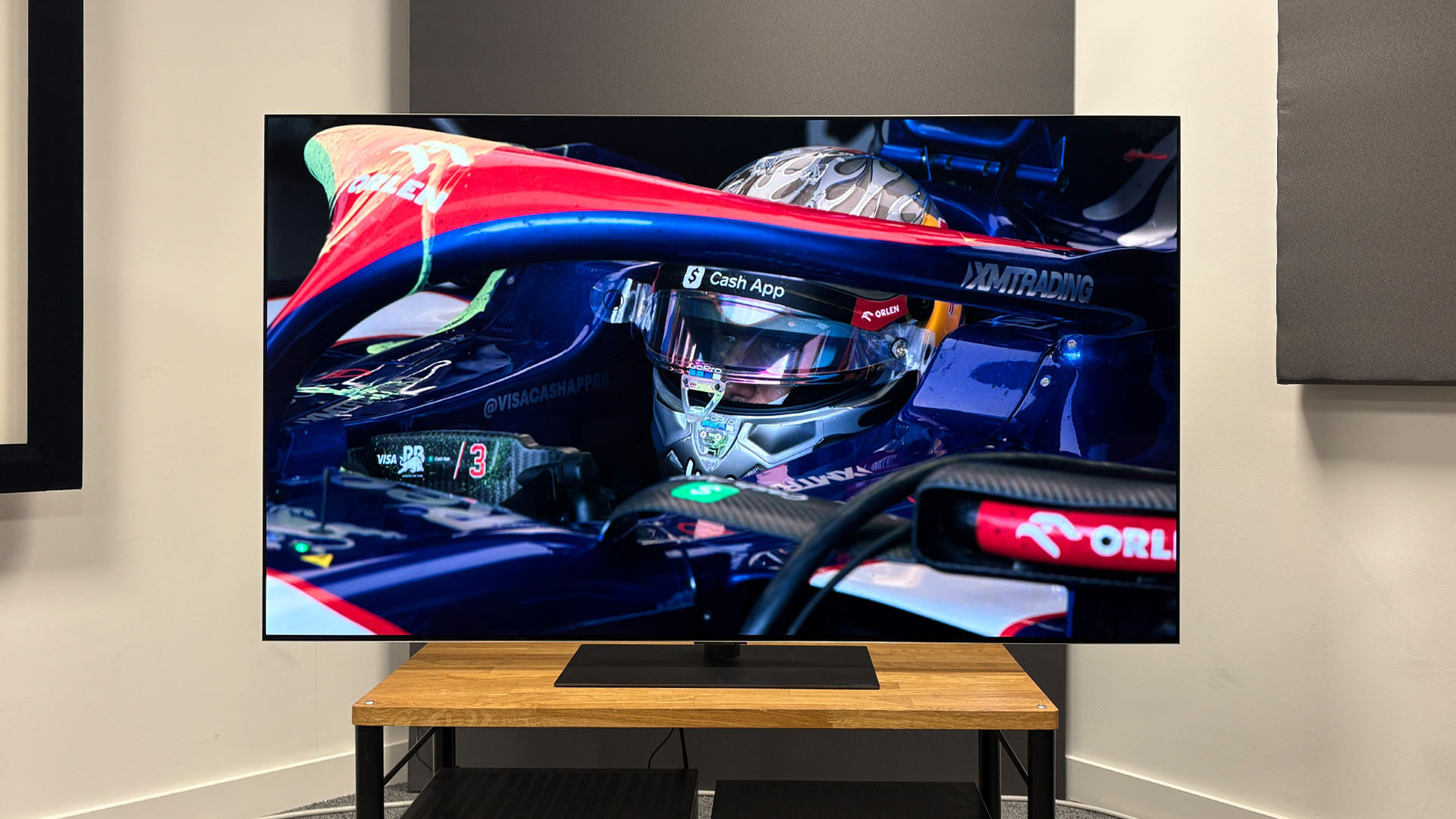Surprise! Samsung has blessed the Galaxy S25 with the missing audio feature I’ve wanted for years
I'm just not sure why Samsung isn't publicising it

When Samsung announced its Galaxy S25 flagship phone last month, I made a beeline for the specifications section of the official website listing. I was specifically looking to see whether the new Galaxy handsets supported the highest-quality Bluetooth aptX codecs its generations of forebears had disappointingly overlooked. But I couldn't see codec support listed. My colleague trawled through the press materials provided by Samsung, but no luck there either. Hmm.
I presumed no specs meant no support; that the Galaxy lineup would, for at least another year, continue to be without Qualcomm’s aptX HD, aptX Adaptive or aptX Lossless, three of the four higher-quality Bluetooth codecs* widely supported nowadays by premium wireless headphones and speakers. Conspicuous by their absence and, to a large extent, historically incompatible.
But Samsung representatives have finally confirmed to What Hi-Fi? every Bluetooth codec the new S25 supports – and I'm pleasantly surprised by the answer.
*The other is Sony’s LDAC, which Galaxy phones have supported.
The aptX HD and Galaxy gripe
UPDATE: This article was written and published based on information provided to What Hi-Fi? by a Samsung PR representative. The same representative has since admitted that the information they passed on was incorrect: "Unfortunately the information we had on the codecs was incorrect. I'm really sorry about this and for the miscommunication. I've just been updated that the S25 Series supports the same Bluetooth series as previous models including aptX and LDAC." We therefore apologise for the inaccuracies below, and the 'surprise' is actually not a surprise at all; Samsung's Galaxy phones still disappointingly and frustratingly lack support for aptX HD, Adaptive and Lossless – some of the highest-quality and most commonly supported Bluetooth codecs.
Despite the availability of aptX HD for the best part of a decade (Adaptive is some years younger while Lossless is very much in its infancy), Samsung phones have historically stuck with the comparatively lower-quality ‘standard’ aptX alongside the company's own Samsung Scalable Codec (SSC) – naturally found in its headphones and earbuds – and LDAC. You can read all about how different Bluetooth codecs are capable of transferring varying amounts of audio data (which impacts the sound quality you hear), and the extent of those capability differences between them all in our comprehensive Bluetooth codec explainer, but essentially aptX is bettered by aptX HD, which is bettered by aptX Adaptive, which is bettered by aptX Lossless (and they are all backwards compatible).
Now, the Galaxy phones’ support of LDAC has always been good news as it is among the best-quality methods of Bluetooth transmission out there, up there with the best aptX codec. However, as codecs are handshakes that require both the transmitting and receiving devices to support the same one, it’s only handy for wireless headphones that support it. Don’t have LDAC-supporting headphones? No cigar. Thankfully, several awesome wireless headphones do support LDAC, including the Sony WH-1000XM5 and Mark Levinson No5.909 found in our best noise-cancelling headphones list.
Get the What Hi-Fi? Newsletter
The latest hi-fi, home cinema and tech news, reviews, buying advice and deals, direct to your inbox.
But it’s also true that even more awesome wireless headphones support those three latest and greatest aptX codecs. A couple of years ago it became a daily frustration of mine when the Samsung Galaxy S21 in my pocket couldn’t play ball with the aptX Adaptive codec supported by my Sennheiser Momentum 4 Wireless headphones, preventing them from reaching their wireless performance potential. The phone’s codec quality – and therefore the handshake between it and the Sennheiser headphones – topped out at ‘standard’ aptX.
Indeed it was a shame for someone like me who wanted the best audio quality available, but even I admit it wasn’t the end of my on-the-go-listening world as, honestly, the differences in sound quality between something streamed to the Sennheisers in aptX and in aptX Adaptive were noticeable but not night and day noticeable. Generally, such premium wireless headphones, good as they were back then, weren’t revealing enough to entirely lay bare the standard aptX’s comparative quality compromises, as a more sophisticated and thus transparent piece of audio equipment would be able to.
Fast forward to last January's Samsung S24 phone launch, however, and in the face of the higher-quality crop of wireless headphones that had emerged (like the Bowers & Wilkins Px8), those gaps in support were a little more than a ‘shame’.
So why the omission? It didn't appear to be a cost issue. A couple of years ago, Android expert Mishaal Rahman was reportedly told by Qualcomm that aptX HD encoders were open-source (part of the Android Open Source Project) and no longer required a license fee to use. Was it, then, simply down to Samsung naturally wanting to push its own SSC codec ecosystem of headphones and earbuds?
The aptX HD/Adaptive omission and the reasons for it have been the topic of discussion and ridicule over the years on various Reddit threads.
The Galaxy S25 changes that

But here comes the good news.
As far as Bluetooth specifications go, Samsung’s product pages for the Galaxy S25 lineup only list support for the 5.4 standard (standards are not the same as codecs). However, despite no official mentions of this on Samsung's website (or, as far as I can see, any third-party sites), Samsung representatives have confirmed to What Hi-Fi? the S25's supported codecs include not only SSC, aptX and LDAC but also aptX HD and Adaptive, plus the niche LHDC. (LC3 is supported too, but that's another story.)
That means aptX Lossless is still off the menu, but that fledgling codec isn't supported by many pairs of headphones (or phones) yet anyway – and hey, let's celebrate the progress!
As the Bluetooth headphones I listen to and travel with most these days, the Focal Bathys, support aptX Adaptive, I would now be able to take advantage of that high-quality transmission with a Samsung S25. Indeed, in our best wireless headphones buying guide, six of the nine premium-priced pairs in the main and ‘also consider’ lists support aptX Adaptive – the Bose QuietComfort Ultra Headphones, Grado GW100x, Mark Levinson No. 5909, Sennheiser Momentum 4 Wireless and Bowers & Wilkins' Px7 S2e and Px8 – while one, the T+A Solitaire T, supports aptX HD.
What's more, the new crop of super-premium wireless headphones – undoubtedly encouraged by the launch of Apple's AirPods Max, and including the aforementioned Focal, Mark Levinson, T+A and B&W pairs – do have acoustics revealing enough for the differences in Bluetooth transmission quality to be more discernible.
It's a win for everyone involved – not least the consumer. When you're paying hundreds for new headphones, you would reasonably hope your phone would allow them to work optimally. Samsung's Galaxy S25 goes on sale today, and there's now no reason I would avoid making it my next Android phone.
MORE:
Read our hands-on Samsung Galaxy S25 Ultra review
Samsung Galaxy S25 vs S24: what's new, and should you upgrade?
Bluetooth 5.0: everything you need to know
Bluetooth LE Audio: what is the next-gen standard? What devices support it?
What is Auracast? And when is the revolutionary Bluetooth audio-sharing tech coming?
Becky is the managing editor of What Hi-Fi? and, since her recent move to Melbourne, also the editor of the brand's sister magazines Down Under – Australian Hi-Fi and Audio Esoterica. During her 11+ years in the hi-fi industry, she has reviewed all manner of audio gear, from budget amplifiers to high-end speakers, and particularly specialises in headphones and head-fi devices. In her spare time, Becky can often be found running, watching Liverpool FC and horror movies, and hunting for gluten-free cake.
-
NorthernDan Uunfortunately, someone at samsung is giving you some bad info which is probably why you can't find it anywhere else. I have a S25 Ultra with all the latest updates and like every other Samsung they have not enabled anything beyond basic aptx as you can see in developer options. My Aptx Adaptive headphones do not play in Aptx Adaptive.Reply
You have Samsung's latest SSC which can do up to 24/32 bits and 96 kHz sample with their ear buds but other than that it's LDAC or nada. No LHDC or LC3 either.
So unless they're planning on enabling it which they've never done on a galaxy to date, (the hardware can do it) they don't appear to be. I would hazard a guess they don't want to undermine their SSC codec which is also adaptive/pay licensing fees when they have their own adaptive codec. -
Don_audio I was very surprised when I read this article. Samsung has not included hi-res 3rd party codecs for a reason, to lock people into their own ecosystem. Samsung recently has gone extra hard to try increase profits so they wouldn't do anything that could affect their bottom line.Reply -
KocurTom "Samsung representatives have confirmed to What Hi-Fi? the S25's supported codecs include not only SSC, aptX and LDAC but also aptX HD and Adaptive, plus the niche LHDC."Reply
Samsung S25 is here and there's no support of HD/Adaptive. Did your source lie to you? Is there any expected update that will make it available?
I'm a bit disappointed since I finally got the phone with Snapdragon instead of their Exynos chipset but those codecs are missing. Probably I will have to look for other brands and leave samsung for it. -
ishan Author of this article should provide some response on this. WhatHiFi is pretty reputable site to be sharing such information (and an important one for audio enthusiasts) without any proper research.Reply -
refactoring I'm a little shocked myself, as I was going to buy the OnePlus 13 but when I saw this article I bought the Samsung s25 instead I think I will need to return it as it doesn't have the aptx hd codec.Reply -
ishan I had already read Aaron's review, which came before this one from whathifi. He clearly said that it's all same as S24. But, still for a moment I was also excited.Reply

